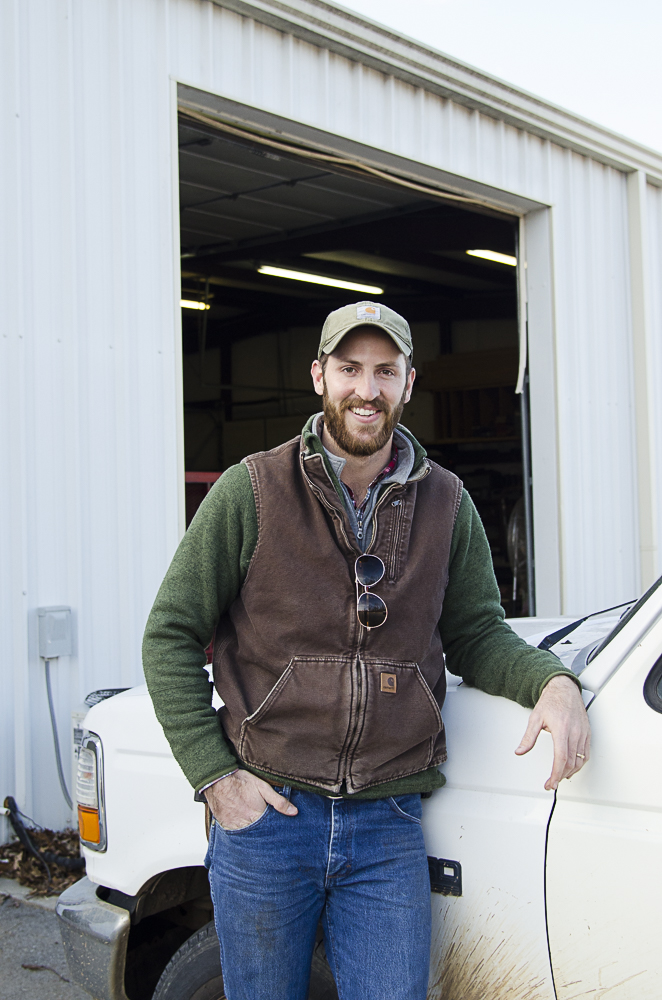![]()
Travis Chaney’s voice is deep, clear and tinged with a Southern accent. When he sings, the accent resounds about twice as strong.
To many, Chaney is simply known as the grounds crew foreman at the University. But long before he became foreman, he was the lead singer, guitarist and songwriter for the country/folk band The Sons of Otis Malone.
Chaney was born in central Texas and moved to Arkansas when he was four years old. Raised on the family ranch, he grew up accustomed to hard work. He also grew up listening to music.
Chaney learned to play the guitar at the age of 11, and often attended bluegrass festivals with his father and brother.
“My dad’s one vice was buying music,” Chaney said. “We had lots and lots of CDs and tapes. He loved music, and my uncle was a musician. So both my brother and I are musicians.”
While Chaney’s brother pursued music as a full-time job, Chaney decided to prepare for a career in agriculture. He attended the University, and majored in construction management and history. It was at the University that Chaney and a group of fellow musicians formed The Sons of Otis Malone for the University’s Talent Show in 2006.
After graduation, Chaney became a farmer. He worked first as an independent landowner, and then for an organization called the Institute for Biblical Community Development. As he worked, Chaney would often compose music.
“It’s harder now because I’m so busy,” Chaney said. “But before, I worked alone a lot, like I’d be sitting on a tractor…I had a lot more time to think, and honestly, that’s when I wrote most of my songs.”
Chaney considers music a calling, not a job.
“It was part of my life philosophy that I wanted to find one place and spend a good chunk of my life taking care of it,” Chaney said. “With music, I have very much the same philosophy as I do in my job: Bloom where you’re planted.”
And the band has indeed bloomed. In the 10 years since its inception, they have released two albums and put on multiple shows in Siloam Springs. Members have come and gone—Chaney is the only current member from the original group—but it has thrived on the variety, and continues to play today.
“He’s in his element,” Brodey Collins, groundskeeper, said of Chaney during his performances. “He’s in his zone whenever he’s on stage, entertaining.”
Chaney believes that the genre of country music is full of potential, and seeks to bring his own special seasoning to it.
“I love soul in music,” Chaney explained. “The closest thing that rural white Americans have to soul music is country music. It’s music about where you came from, it’s music that ties you to a longer train of people that went before you. Instead of being about celebrating an individual artist, it’s about celebrating a particular way of life.”
For Chaney, country music is a link to his own roots. That bond became even more important after his family sold the ranch where he grew up.
“With country music, there’s always this sense of loss,” Chaney said. “There’s a lot of heartbreak and wishing for things to be like they used to be.” He paused a moment. “Then there’s a lot of murder and cheating and all that kind of stuff that makes it salty.”
Chaney draws from his experiences with people of rural Arkansas and Oklahoma for his music. Those he worked with in construction especially affected him.
“The guys that I was around, and part of my extended family were very much from a rough, rural background,” Chaney said. “Around here, the rural areas are really rough. Lot of drugs, crime and broken-apart families. It’s always been like that.”
Chaney seeks to portray the lives of the people he has encountered, just as they are, without the romanticism and idealism he finds prevalent in contemporary country music.
“He loves telling stories, even when he’s not singing,” Ben Bergstrom said, Chaney’s friend of nine years, as well as mandolin and drum player in the band.
But more important to Chaney than work or music is his family, which include his wife, Angie Chaney, and his two children.
“I think his favorite thing is being a father,” Bergstrom said. “That’s what gives him the most joy.”
Chaney returned to the university in 2014 to fill the position of grounds crew foreman. Now, his voice is more often heard directing workstudies or administrating projects than singing on stage. But music will always be an integral part of both Chaney’s work and his life. After all, it’s in his blood.





